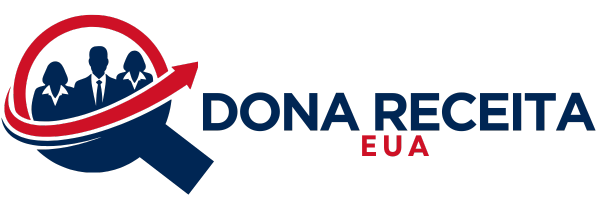Welcome! In this article, we will delve into the importance of exploring different career paths. Whether you are just beginning your professional journey or considering a career change, career exploration plays a vital role in finding meaningful job opportunities and personal growth. By actively engaging in career exploration, individuals can uncover a wealth of possibilities and make informed decisions about their future.
Career exploration involves discovering various industries, job roles, and pathways that align with your interests, skills, and goals. It allows you to broaden your horizons, expand your knowledge, and gain a deeper understanding of the opportunities available in different fields.
Career choices are not always straightforward, and that’s where career planning comes in. By mapping out your career choices and pathways, you can identify the best fit for your skills and aspirations. Through career planning, you can align your objectives with the resources and tools available to enhance your chances of success.
We will also discuss various strategies for finding meaningful job opportunities and career development. Networking, building relevant skills, and staying updated with industry trends are just a few examples of how individuals can pave their path towards a fulfilling career.
Remember, exploring different career paths is a continuous and evolving process. As you navigate your career journey, embrace the opportunities for growth and stay adaptable. Let’s dive into the world of career exploration, uncovering new horizons, and paving the way for a rewarding future!
Finding Meaningful Job Opportunities
When it comes to career development, finding meaningful job opportunities is key. It’s about more than just securing employment; it’s about aligning your skills, interests, and values with a career that brings fulfillment and personal growth. In this section, we will explore various strategies that can help you uncover exciting job prospects and pave your path towards a fulfilling career.
Networking for Success
Networking is a powerful tool that can open doors to new job opportunities. By connecting with professionals in your industry, attending industry events, and actively participating in online communities, you can expand your network and increase your chances of finding meaningful employment. Remember, it’s not just about who you know, but how you nurture those connections.
Building Relevant Skills
To stand out among the competition, it’s essential to build relevant skills that align with your desired career path. Identify the key skills and qualifications that employers in your field value and invest time and effort into acquiring them. This could involve taking courses, attending workshops, or gaining hands-on experience through internships or volunteering. By continuously developing your skill set, you increase your marketability and open doors to exciting job opportunities.
Staying Updated with Industry Trends
In today’s rapidly evolving job market, staying updated with industry trends is crucial. Employers value candidates who demonstrate a deep understanding of their industry and show a willingness to adapt to change. Stay informed through industry publications, newsletters, and professional development opportunities. By staying on top of the latest trends and advancements within your field, you can position yourself as a valuable asset to potential employers.
By following these tips and techniques for finding meaningful job opportunities, you can enhance your career development journey. Remember, landing a job is not just about fulfilling immediate financial needs, but about finding a career that aligns with your aspirations and allows you to thrive. Take the time to explore, develop your skills, and stay informed, and you’ll pave the way for a fulfilling and rewarding career.
Mapping out Career Choices and Pathways
When it comes to career planning, mapping out career choices and pathways is crucial. By taking the time to explore different options and identify individual strengths, interests, and goals, individuals can make informed decisions about their career paths. Career planning serves as a guide, helping individuals navigate the ever-changing job market and realize their full potential.
One of the first steps in mapping out career choices is self-reflection. By understanding personal strengths, such as communication skills, problem-solving abilities, or creativity, individuals can align their talents with suitable career paths. It is equally important to identify interests, as finding a career that aligns with one’s passions can lead to greater job satisfaction and long-term success.
In addition to self-reflection, setting clear goals is another essential aspect of career planning. Aspirations may include reaching a specific role, obtaining advanced degrees or certifications, or achieving work-life balance. By outlining these goals, individuals can create realistic and actionable steps toward achieving them.
Resources and Tools for Career Exploration and Planning
In today’s digital age, a wealth of resources and tools are available to assist individuals in their career exploration and planning journey. Online platforms, such as career assessment tests, self-paced courses, and virtual mentorship programs, can provide valuable insights into different industries and job roles. Additionally, professional networking platforms, like LinkedIn, offer opportunities to connect with industry professionals, gain knowledge through thought leadership content, and identify potential career paths.
It is also important to tap into offline resources, such as career services offered by educational institutions or industry-specific organizations. These resources often provide career counseling, workshops, and job fairs, enabling individuals to gain practical advice and connect with employers.
Remember, mapping out career choices and pathways is an ongoing process. As individuals grow and evolve, their career goals may change. By continuously reassessing strengths, interests, and goals, individuals can adapt their career plans accordingly and unlock new opportunities.
Conclusion
In conclusion, exploring different career paths is an essential aspect of personal and professional growth. Career exploration allows individuals to broaden their horizons and uncover a multitude of job opportunities that align with their interests and goals. By actively engaging in this process, individuals can make informed decisions about their future and pave the way for a fulfilling career.
Career development is a continuous journey that requires dedication and adaptability. It involves actively seeking out new knowledge and skills, networking with professionals in the field, and staying updated with industry trends. By investing in their own growth, individuals can enhance their chances of securing meaningful employment and progressing along their chosen career paths.
Moreover, career planning plays a crucial role in helping individuals navigate the complexities of the job market. By mapping out career choices and pathways, individuals can identify their strengths, preferences, and long-term aspirations. This self-reflection allows for strategic decision-making and ensures individuals are aligned with career opportunities that align with their passions and goals.
Ultimately, exploring career paths and undertaking the necessary steps for career development and planning empowers individuals to create their own professional destinies. By embracing the ever-changing landscape of work, individuals can adapt, grow, and thrive in a constantly evolving job market.

